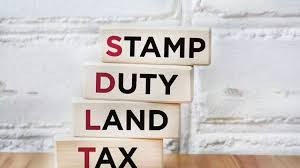Stamp duty is a tax charged to homeowners when they purchase a property in the UK; however, it only needs to be paid when the property fulfils certain criteria.
There are a few different titles for stamp duty. In England and Northern Ireland, it is referred to as stamp duty land tax; in Scotland, it is called land and buildings transaction tax; in Wales, it is called land transaction tax. The common term for it is stamp duty; ultimately, it means that when purchasing property or land, it is common to be required to pay tax on it.

Understanding stamp duty
For a long time, every nation in the UK has maintained a progressive stamp duty rate system. This means that instead of paying a single rate on the whole property when it is purchased, the owner may pay one rate on a proportion of the property and a different rate on another.
When it comes to stamp duty, if a buyer has ever owned – or part-owned – a property, whether in the UK or abroad, they won’t be considered a first-time buyer. This also applies if a buyer has ever inherited a property, even in cases where they sold it immediately and never lived in the property.
To gain a better understanding of stamp duty as a second-time buyer, this article in the Guardian may prove useful:
Working out the costs
Working out how much stamp duty needs to be paid, particularly for first-time buyers, can be quite confusing. This is especially the case when purchasing as a married couple or civil partnership, as extra complications could potentially arise.
In such cases, it is advisable to look into setting up a deed of trust as a way to mitigate these issues. Companies such as https://www.parachutelaw.co.uk/deed-of-trust will be able to help.

To clarify things for first-time buyers, there is no stamp duty for first-time buyers on the first £425,000 of a main residential property in England and Northern Ireland. In Wales, first-time buyers don’t pay any land transaction tax on the first £225,000 of a property. In Scotland, they pay no land and buildings transaction tax on the first £175,000 of a property.
When buying in England or Northern Ireland, property owners are given 14 days from the date of completion to pay stamp duty. In Scotland and Wales, they have 30 days.
